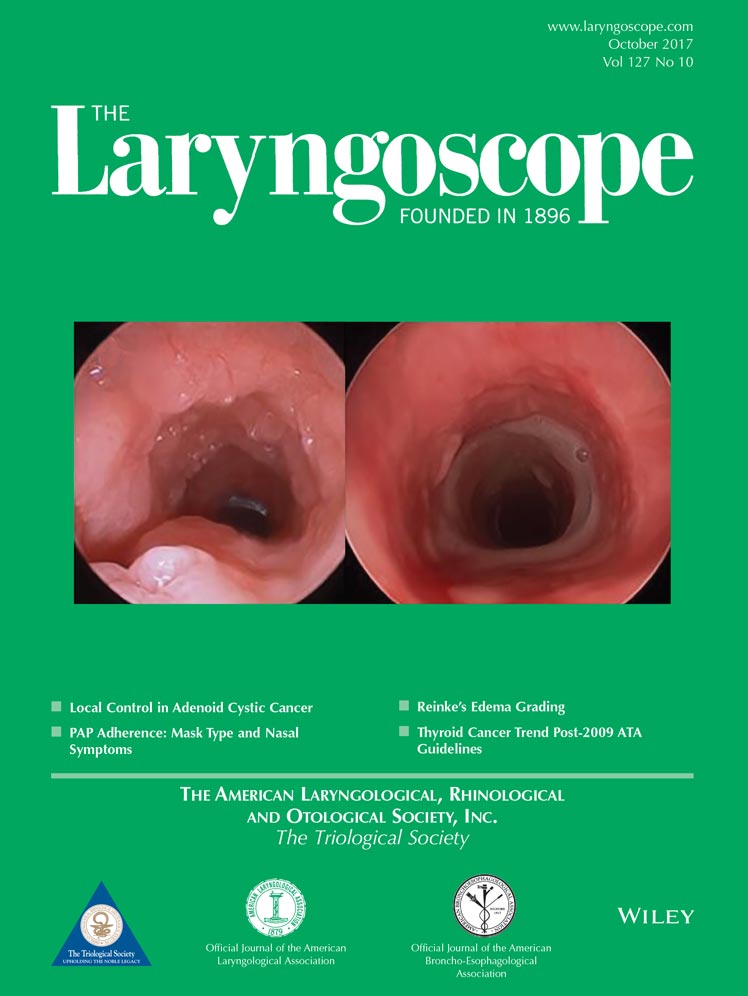The state of academic sleep surgery: A survey of United States residency and fellowship programs
The authors have no funding, financial relationships, or conflicts of interest to disclose.
Presented at 2016 Annual American Academy of Otolaryngology–Head and Neck Surgery Meeting, San Diego, California, U.S.A., September 19, 2016.
Abstract
Objectives/Hypothesis
Our objectives were to describe otolaryngology residency programs' experience in and attitudes toward sleep surgery, and describe current otolaryngology sleep fellowships and their impact on future academic practice.
Study Design
E-mail survey.
Methods
A survey was e-mailed to program directors of 106 Accreditation Council for Graduate Medical Education-accredited otolaryngology residencies assessing resident sleep medicine experience, program satisfaction, and impact of sleep faculty. A separate survey was sent to directors of the seven sleep medicine otolaryngology fellowships. Frequency of graduates pursuing academic careers was examined.
Results
Forty-six (43.4%) residency programs responded. Thirty-one (67.4%) have a faculty member with any time spent practicing sleep medicine or surgery. Nineteen (41.3%) have a faculty member with >50% dedicated sleep practice and/or who is board certified in sleep medicine. These programs were significantly more likely to respond “extremely” or “very” satisfied with resident sleep exposure than those without (P < .001). Most programs (69.6%) “strongly agreed” or “agreed” their program would benefit from a dedicated sleep surgeon; there was no significant difference in response rates between programs already with and those without dedicated sleep faculty. All fellowship directors responded. In the past 5 years these programs have trained 11 total fellows. Ten (90.9%) have remained in academic practice.
Conclusions
There is significantly increased satisfaction in resident sleep education at otolaryngology programs with dedicated sleep providers. Concurrently, there is strong program interest in sleep surgeons' involvement in resident training. Sleep fellowships are producing surgeons who pursue academic careers. This study provides support to training fellowship-specialized sleep surgeons and encouraging otolaryngology sleep faculty.
Level of Evidence
NA Laryngoscope, 127:2423–2428, 2017




